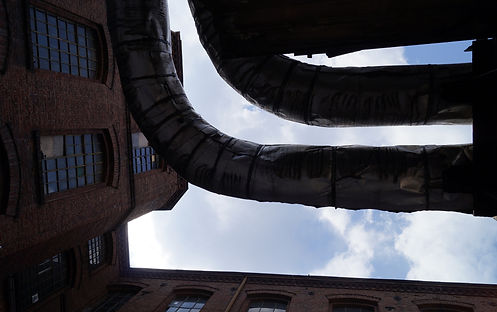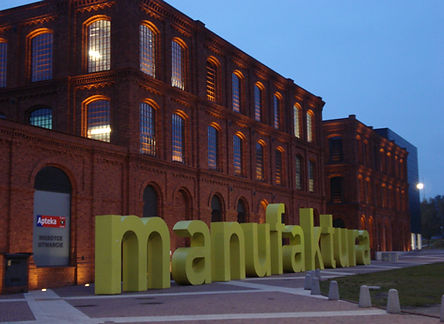
Describe your image.
Łódź - the Promised Land
I'll explain the title first. "Promised Land" is a title of an 1899 novel (and a movie by Wajda based on the book) by Polish author and Nobel laureate Władysław Raymont. It tells a story of my city: Łódź as it was towards the end of the 19th century. Within 50 years it changed from a sleepy town of less than a thousand into a metropole of 232 000 people beaming with industry. What it also had was character, most of it lost due the II World War. People in Łódź hardly ever called themselves Polish, they belong to the city they lived in, their Promised Land. They were Lodzermenschen.

Lodzermensch is simply someone from Łódź and the term is also used today although not widely. The name was created already in the 19th century and referred to people who have arrived to the city to find luck in the industrial boom. As majority of them was German speaking and the city is called either Lodsch or Lodz in that language and Mensch stands for “man” – the myth of a Lodzdermensch was born. The feeling of belonging to the community was so strong that during the II World War a lot of families with German roots living here didn't sign the Volksliste (a list giving them the same rights as Germans born in Germany as opposed to other nationalities living in the city) because they never felt German - they belonged to the city.
The 3 main characters from the book are Karol (Pole), Max (German) and Moryc (Jew). Their cultural differences allow them to work together in executing a very simple plan: to make as much money as possible. To achieve that they build a factory. In those days one didn't need to be aristocrat to make a name or a fortune. The free market and capitalism bloomed and tempted everyone. People from the country were moving in hundreds to the city to seek their luck. But similarly to the American Dream only few were able to seize opportunities and use them to their advantage. The rest was turning one by one into poor labouring mass fuelling the industry. The Promised Land wasn't there for everybody.

Being a Lodzermensch made people proud. It meant an open mind, cultural variety and intellect. It meant free market, the power of the smarter who sees business opportunities where others don't. It meant being a dodger, capitalist and eager to build, build, build and manufacture, manufacture and manufacture. It means to love Łódź no matter what and to see beauty in every shade of grey an industrial city can contain.
I'm a Lodzermensch and in this section my intention is to awake your interest and when you finally visit you will be able to appreciate the nuances a lot more.

